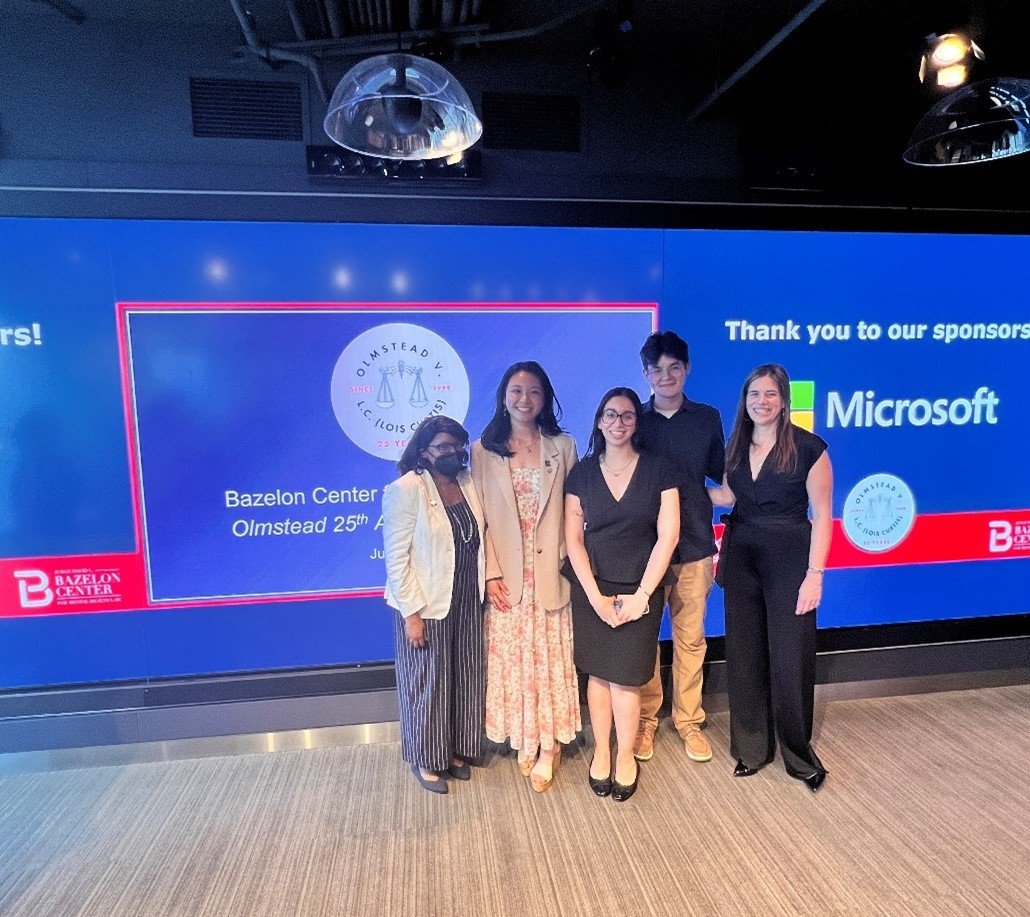Written by: Sophia Benavente-Sayani, Cisneros Scholar ‘27
I’m the first person in my family to go to college, the first to pursue a legal career, and now, thanks to my experience with Comunicadores, the first mental health advocate. I started my internship at the Bazelon Center for Mental Health Law brimming with excitement at the opportunity to explore the legal profession. Since day one, I have soaked up as much as I can, sorting through old amicus briefs, hanging onto every word from our legal team, and being grateful to find mentors who are willing to answer my questions. Although my time as a summer intern feels short, I have been given many opportunities during these few weeks to engage in legal research due to the vast breadth of subject matter that Bazelon covers.
Before this experience, I had admittedly not considered how disability advocacy intersects with federal law — a reality that made sense once I learned that one out of every four Americans lives with a disability. The competing images I had in my mind of “law” and “advocacy” as brooding courtrooms and thick reference books versus picket signs and marches have been completely transformed by my experience at Bazelon, where the two come together to make palpable change.
After just a few weeks, I see what a path to and future in the legal field could look like. I’m also learning about how crucial communications is to ensuring the rights and protections granted to Americans living with disabilities and mental illnesses under federal law. For many of us, unless we are directly impacted by these protections, we live our lives unaware of them. This lack of information sharing in schools and at work disproportionately affects communities of color.
Teasing chants of “Quiere llorar! Quiere llorar!” during family gatherings haunt the memories of many Latine Americans, myself included. Indeed, the mental health of Latine Americans is chronically overlooked due to stigmas within our community and harmful stereotypes perpetuated outside of it. Our community is often treated like a monolith, and many of the solutions prescribed to Latines are not culturally relevant or accessible; they don’t address our individual, unique needs.
A similarly underserved group includes immigrant children living with disabilities and mental illnesses who lack access to appropriate care. Many of these children — especially those crossing the U.S.-Mexico border — are put in shelters. Others are put in mental institutions against their will without any power to advocate for themselves or the ability to communicate with others who can help them receive proper treatment. Organizations like Bazelon bring together aspects of mental health advocacy, law and communications to shine a light on these unacceptable conditions and to advocate for those who have been pushed to the side for too long.
I’m incredibly proud to be able to play a role in enacting change for Latines and immigrants. Learning more about these harrowing realities has reaffirmed my belief that diverse community members must have a seat at the table when decisions are made about legal issues that affect them. It has also shown me that knowledge about issues and the ability to amplify them create a powerful combination that I will carry with me long after this summer is through.
Sophia Benavente-Sayani is a Cisneros Scholar majoring in Political Science and History. This summer, she is a Comunicadores intern at Bazelon Center for Mental Health Law. Sophia's views are her own and not necessarily reflective of the Cisneros Institute.
This article was originally published by Vanguard Communications.


